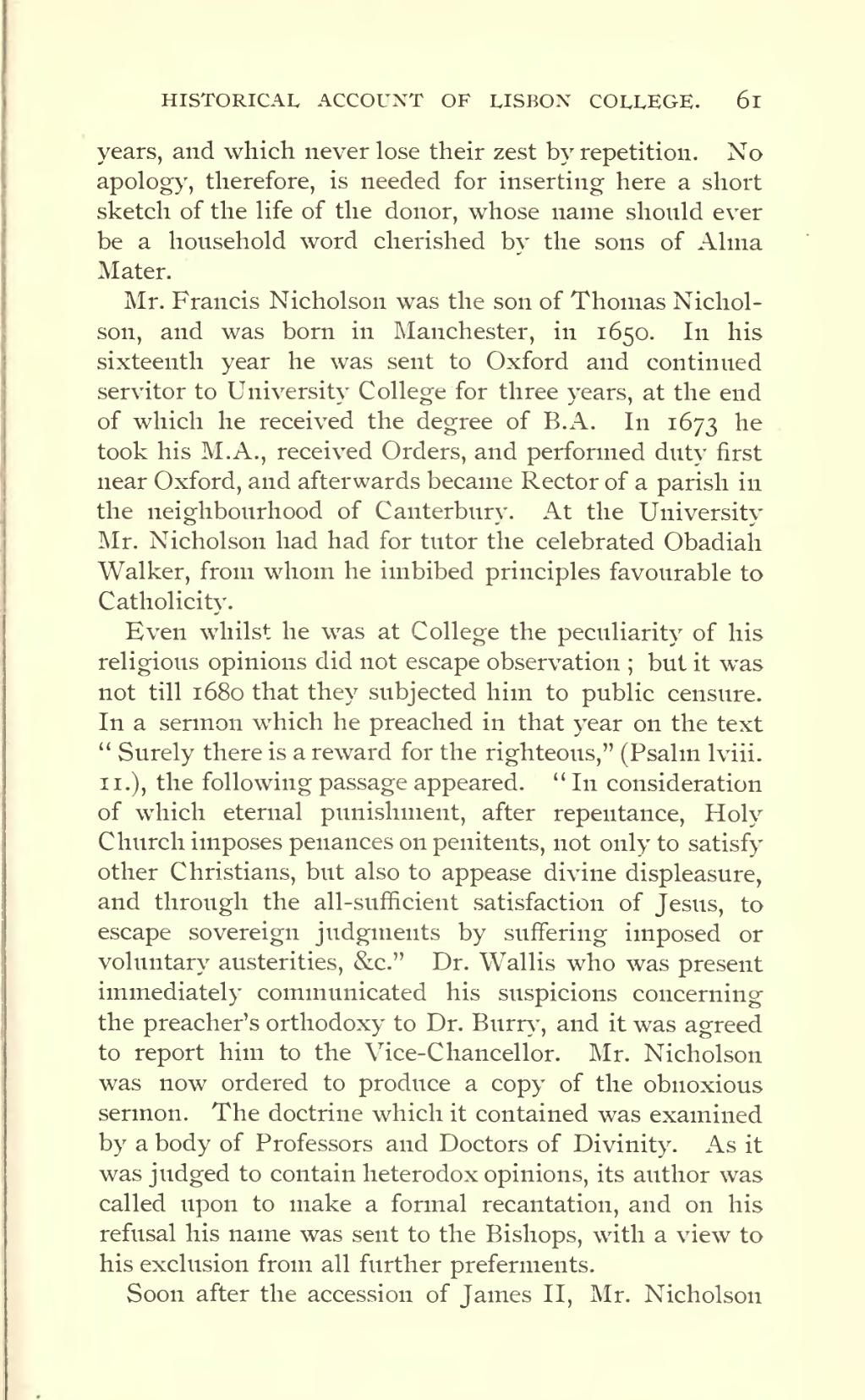years, and which never lose their zest by repetition. No apology, therefore, is needed for inserting here a short sketch of the life of the donor, whose name should ever be a household word cherished by the sons of Alma Mater.
Mr. Francis Nicholson was the son of Thomas Nicholson, and was born in Manchester, in 1650. In his sixteenth year he was sent to Oxford and continued servitor to University College for three years, at the end of which he received the degree of B.A. In 1673 he took his M.A., received Orders, and performed duty first near Oxford, and afterwards became Rector of a parish in the neighbourhood of Canterbury. At the University Mr. Nicholson had had for tutor the celebrated Obadiah Walker, from whom he imbibed principles favourable to Catholicity. Even whilst he was at College the peculiarity of his religious opinions did not escape observation; but it was not till 1680 that they subjected him to public censure. In a sermon which he preached in that year on the text "Surely there is a reward for the righteous," (Psalm lviii. ii.), the following passage appeared. " In consideration of which eternal punishment, after repentance, Holy Church imposes penances on penitents, not only to satisfy other Christians, but also to appease divine displeasure, and through the all-sufficient satisfaction of Jesus, to escape sovereign judgments by suffering imposed or voluntary austerities, &c." Dr. Wallis who was present immediately communicated his suspicions concerning the preacher's orthodoxy to Dr. Burry, and it was agreed to report him to the Vice-Chancellor. Mr. Nicholson was now ordered to produce a copy of the obnoxious sermon. The doctrine which it contained was examined by a body of Professors and Doctors of Divinity. As it was judged to contain heterodox opinions, its author was called upon to make a formal recantation, and on his refusal his name was sent to the Bishops, with a view to his exclusion from all further preferments.
Soon after the accession of James II, Mr. Nicholson
